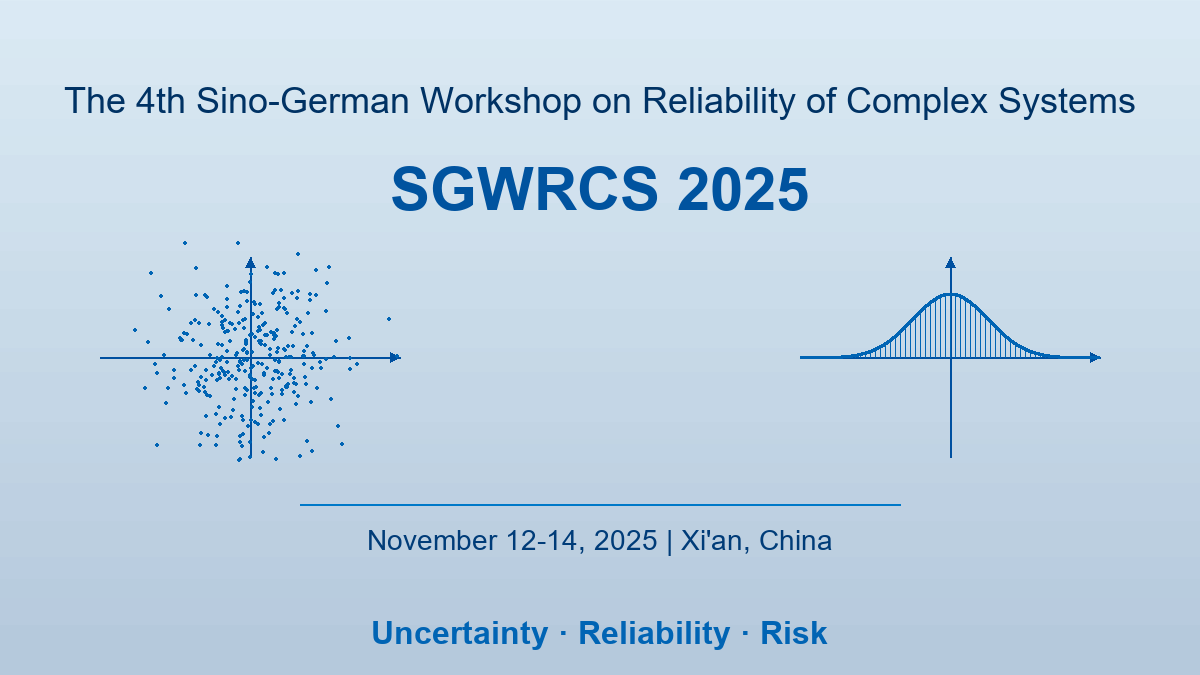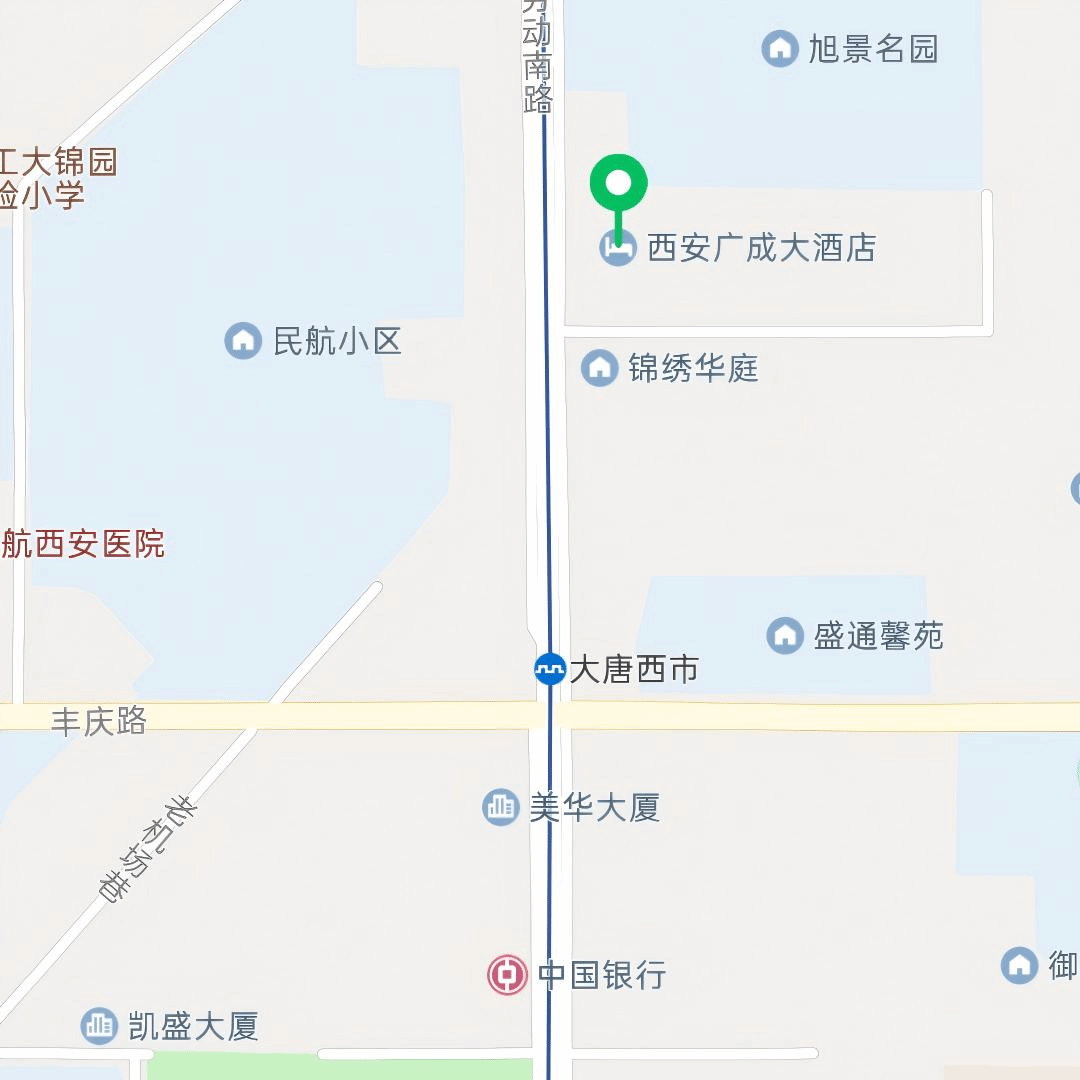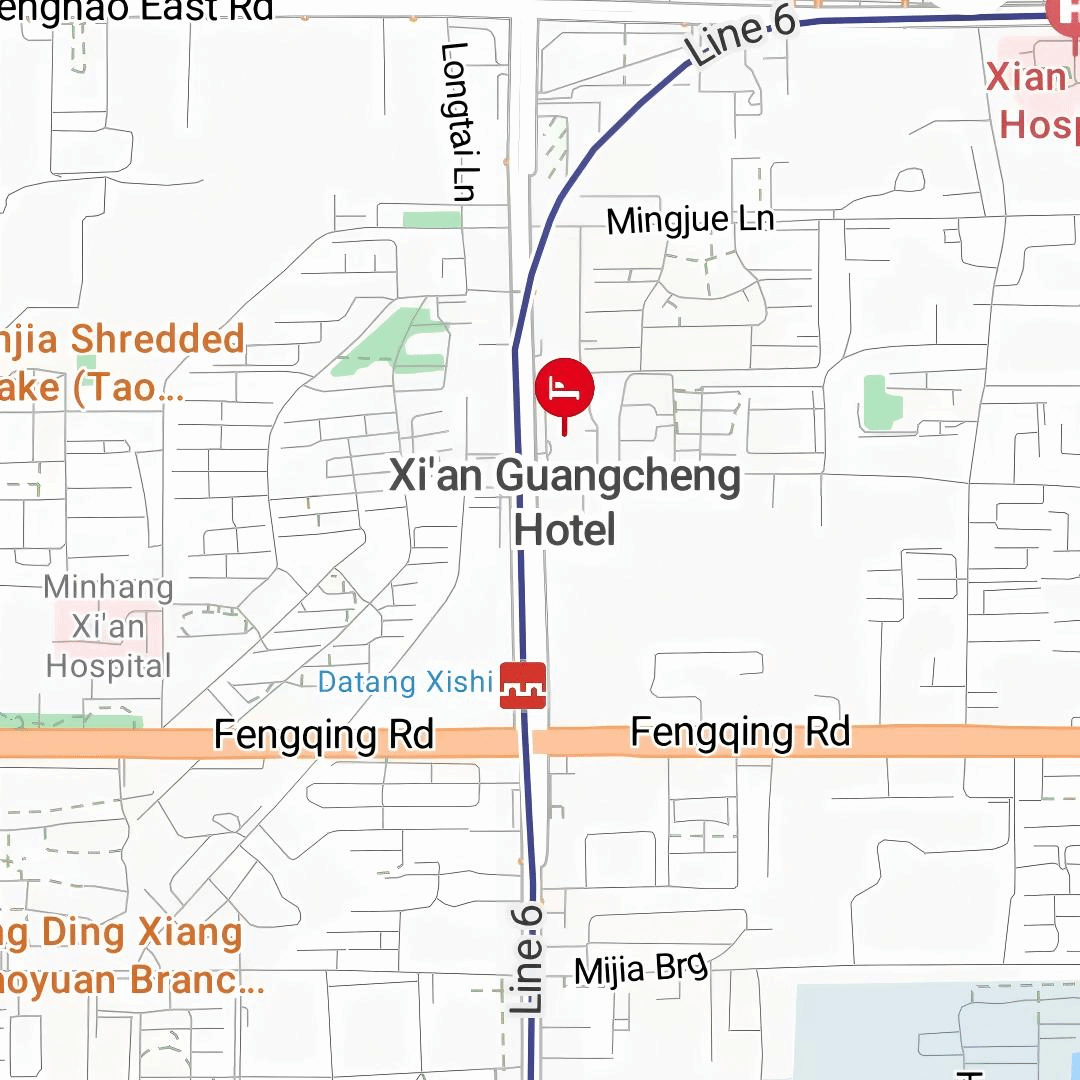Welcome to
The 4th Sino-German Workshop on Reliability of Complex Systems
SGWRCS 2025

Workshop Abstract
The 4th Sino-German Workshop on Reliability of Complex Systems (SGWRCS 2025) is organized following the Sino-German Mobility program with title “Bayesian inference and updating for reliability analysis of complex systems under incomplete knowledge”, and this is the fourth edition, with Prof. Michael Beer (Institute for Risk and Reliability, Leibniz University Hannover, Germany) and Assoc. Prof. Pengfei Wei (School of Power and Energy, Northwestern Polytechnical University, Xi’an, China) as chairs.
The workshop has so far been successfully held for three sessions: 2021 (Xi'an, China), 2023 (Hanover, Germany), and 2024 (Xi'an, China), and has received extensive positive responses.
The SGWRCS 2025 will be held in Xi’an, China, on November 12-14, 2025, with the focus on Uncertainty, Reliability,
Risk, Resilience of complex engineering systems appeared in key infrastructures and advanced manufacturing. It also covers related topics like structural health monitoring, model verification & validation, model uncertainty, design under uncertainties, etc., across all disciplinaries such as mechanical engineering, civil engineering, geotechnical engineering, power and energy engineering. The main purpose of the workshop is to gather internationally renowned scholars from various disciplines to discuss the latest theoretical advancements in the aforementioned topics, as well as its latest applications in their respective fields. The workshop will consist of more than 19 invited lectures by internationally distinguished scholars and a number of student presentations, with ample Q&A sessions following each presentation.
Confirmed Invited Speakers
The confirmed invited speakers are as follows (to be updated continuously):
Kok Kwang Phoon, Singapore University of Technology and Design, Singapore
Jianbing Chen, Tongji University, China
Min Xie, City University of Hongkong, China
Alice Cicirello, Cambridge University, UK
Matthias Faes, Technical University Dortmund, Germany
Heung Fai LAM, City University of Hong Kong, China
Matteo Broggi, Leibniz University Hannover, Germany
Xinyu Jia, Hebei University of Technology, China
Sifeng Bi, Beihang University, China
Chong Tang, Dalian University of Technology, China
Yi Zhang, Southeast University, China
Changcong Zhou, Northwestern Polytechnical University, China
Pan Wang, Northwestern Polytechnical University, China
Kuan Lu, Northwestern Polytechnical University, China
Shenren Xu, Northwestern Polytechnical University, China
Marius Bittner, Leibniz University Hannover, Germany
Chao Dang, Technical University Dortmund, Germany
Zhouzhou Song, Technical University Dortmund, Germany
Confirmed Student Speakers
Lukas Fritsch, Leibniz University Hannover, Germany
Niklas Winnewisser, Leibniz University Hannover, Germany
Thomas Potthast, Leibniz University Hannover, Germany
Qian Zhang, Northwestern Polytechnical University, China
Fangqi Hong, Northwestern Polytechnical University, China
Yifan Cui, Northwestern Polytechnical University, China
Hongru Liu, Northwestern Polytechnical University, China
Xinyu Liu, Northwestern Polytechnical University, China
Venue
The workshop will be held at Xi'an Guangcheng Hotel (西安广成大酒店). Additional information about the hotel can be found at: //xian-guangcheng.allxianhotels.com/en/.
地址: | 陕西省西安市莲湖区劳动南路中段 西安广成大酒店 |
Address: | Middle Section of South Laodong Road, Lianhu District, Xi'an (Shaanxi), China |


Chairs of the Workshop:
Michael Beer, Leibniz University Hannover, Germany, [email protected]
Pengfei Wei, Northwestern Polytechnical University, China, [email protected]
Co-hosted by:
School of Power and Energy, Northwestern Polytechnical University, Xi’an, China
Institute for Risk and Reliability, Leibniz University Hannover, Hannover, Germany
Science and Technology on Altitude Simulation Laboratory, Mian Yang, China
Sponsored by:
the Sino-German Mobility Program with title “Bayesian inference and updating for reliability analysis of complex systems under incomplete knowledge” and grant number “M-0175”, granted by the Sino-German Center for Research Promotion